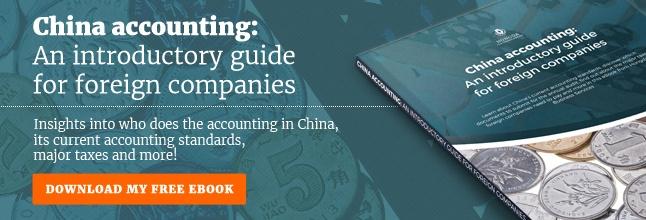It's Friday and time for yet another Hongda Business Services Roundup!
I trust that you all had a very productive week and that you are ready for the weekend, but before we get into the roundup I'd like to remind our audience that we are still looking for suitable candidates to join our sales team in Shenzhen. If you'd like to know more about what responsibilities this role entails and what the applicant requirements are, find out more here!
Moving on to the roundup, this week we have got another infographic for you that sheds a considerable light on just how many new companies were registered in China last year, we run you through some of the major taxes for foreign companies, take a look at what you need to do to attract Chinese traders, and we explore how one can find an affordable lawyer in China that speaks English!
Let's dive right in!
1) Want to attract Chinese traders? Go mobile

While mobile usage is growing rapidly all around the world, its use has taken epic proportions in China, where almost a third of the population has a smartphone. The Chinese have vaulted over the use of PC and moved directly onto adopting mobile as their preferred method for accessing the internet and conducting everyday business, running errands and managing their routines.
With nearly half of the country’s population using mobile phones to access the web as of the end of last year (90% of Chinese surfing the web do it through a mobile phone according to a recent report published by the China Internet Network Information Center), and 358 million people using mobile payment services, the use of mobile has become a major driver of growth of the economy.
2) How to find an affordable lawyer in China that speaks English!

Step One: Look in the right place: China, not back home
There are essentially 3 types of law firms operating in China
Type 1: Large multinational firms with offices in your home country and partners in China. They target large clients with large bank accounts. They usually offer excellent service, have dedicated account managers and are set up to tackle legal issues for clients that involve 3 or more national jurisdictions. But if your particular legal issue is in China, you may not need global expertise.
Type 2: At the other end of the spectrum, there are lots of local lawyers in Asia with variable degrees of professional and affordability, yet they often lack the foreign language, project management and customer service skills to successfully engage overseas clients. But they are low cost.
Type 3: In the middle you will find China-based, foreign-operated law firms and legal service providers. They offer excellent service at reasonable prices.
3) Starting a business in China: Companies by the numbers [Infographic]

Tweet this infographic to your followers!
4) A rundown of the major taxes in China for foreign businesses

China is in the process of going through some major tax reforms in the hope of helping local companies and neighbouring countries save billions of dollars on taxes in 2016.
The continuation of tax reforms were emphasized by the statement released by the National Bureau of statistics at the end of January, going into some detail about China's plan to expand its value-added tax (VAT) reforms to let industries that enter the scheme this year pay 560 billion yuan ($85.1 billion) less in tax than they did in 2015.
In addition to this there is also the Belt and Road Initiative that is set to help neighbouring countries doing business with China such as Cambodia, India, Indonesia, Pakistan, Romania and Russia to benefit from tax agreements.
This is certainly great news for domestic companies in eligible industries and for the countries along the Belt and Road, but when it comes to foreign enterprises looking to move their operations to China, what are the relevant tax costs that their business may incur?
Read on to find out what the major taxes in China for foreign businesses are today, and how where you register your company may help you save below...
Tweet this blog into the Twittersphere!
Please let us know about any of your thoughts regarding some of the topics we recapped this week in the comments below, or let us know about any other topics you'd like for us to cover.
Hope everyone has a great weekend and that you catch us again next week for more of the news that matters in our world!






